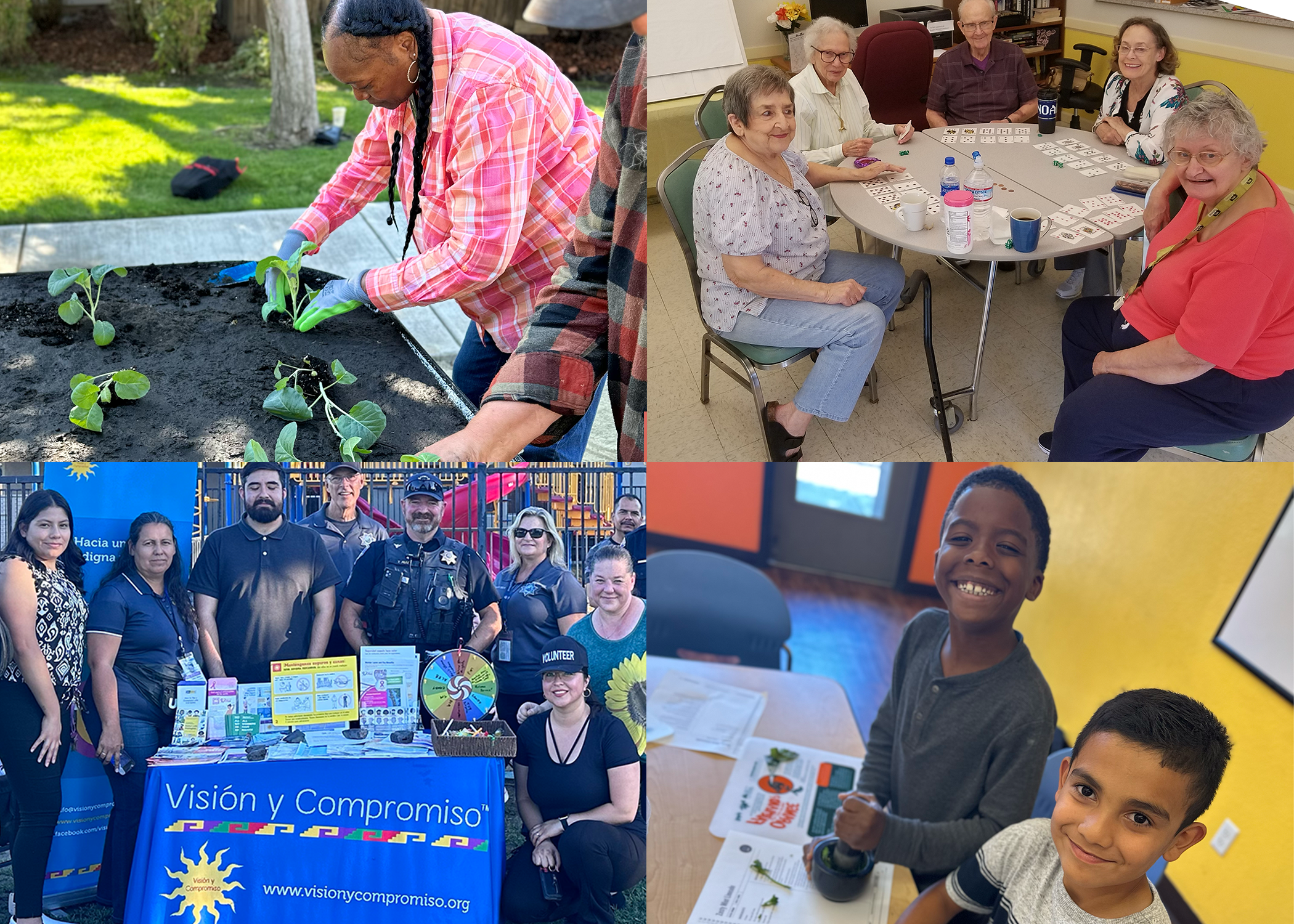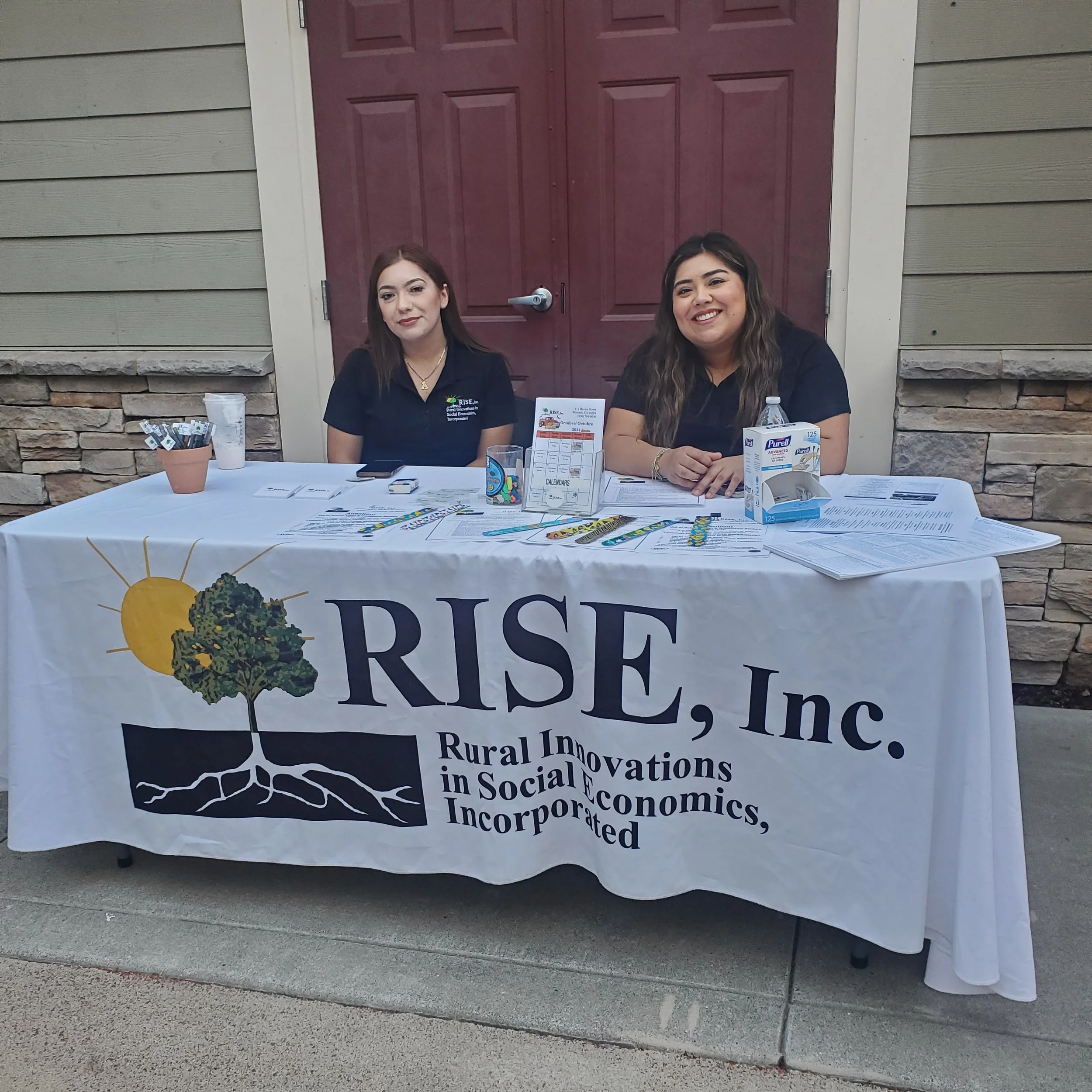Why Resident Services in Affordable Housing Must Be Funded More Sustainably
(Fairfield, CA) - When CHOC’s Chief Strategy Officer Joy Silver wrote in Multi-Housing News about “putting people first,” she named the operating principle of our work. At CHOC Impact, we believe that affordable housing is more than bricks and mortar — it’s about stability, dignity, and opportunity for the people who call our communities home.
But “putting people first” doesn’t end with construction. It depends on the long-term funding of resident services — the lifeline programs that keep communities healthy, safe, and thriving.
Resident services are what make affordable housing work as intended. They’re the wellness checks that help seniors age safely in place, the after-school programs that inspire young learners, and the crisis supports that help families weather financial shocks. These programs are often required in regulatory agreements, yet the funding attached is minimal and time-limited — a structure that puts the very stability of communities at risk.
When Funding Ends, the Need Doesn’t
Across the country, affordable housing organizations are tasked with providing resident services without reliable, ongoing resources. When service contracts or regulatory agreements expire, funding can vanish overnight — not because the need disappears, but because priorities shift.
As new families move in and communities evolve, the need for support often grows. Yet the funding model remains static. Meanwhile, older and smaller housing communities — those with the tightest budgets — face the hardest challenge of all: keeping services alive with little to no dedicated support.
“Funding for resident services and community engagement is frequently inadequate and lacks consistency, as grants tend to come and go.”
— Enterprise Community Partners, Housing Affordability Breakthrough Challenge (2023)
Without sustainable funding, resident services staff spend as much time chasing dollars as they do serving residents. The result is a system that meets compliance, but not community need.
What’s at Risk When Funding Isn’t Sustainable
When services are underfunded, the consequences are tangible — and deeply human.
Seniors risk isolation, preventable health crises, and eviction when safety nets like wellness checks or benefits navigation disappear.
Families face preventable housing instability when crisis intervention or mediation resources run out.
Youth lose access to enrichment programs that help them build skills, confidence, and equity with peers who can afford private programs.
As Harvard’s Joint Center for Housing Studies notes, “Over half of organizations providing resident services operate with budgets below $300,000,” highlighting how limited many programs are despite growing demand.¹
Across the industry, funding models tend to focus on compliance — ensuring that a minimum level of service exists — rather than on impact. That approach keeps programs technically active but chronically under-resourced. Staff are stretched, training is limited, and programming becomes transactional instead of transformative.
Without the flexibility that comes from sustainable funding, organizations can’t plan for growth, respond to new needs, or invest in quality improvements. Families who can afford private programs have access to enrichment, mentorship, and opportunity, while those in affordable housing too often receive the bare minimum. Sustainable funding closes that gap — creating equity, not just compliance.
Beyond Compliance: The Case for Sustainable Investment
Resident services are not “extras” — they are essential infrastructure. They are what transform affordable housing into a living system of support where residents don’t just survive but thrive.
“Affordable housing is more than brick and mortar buildings; it’s about stability: family stability, housing stability, community stability. But stability fades when resident services are underfunded or cut.”
— Terri Smyth, Vice President, Community Impact
To sustain that stability, we need funding models that are as durable as the housing itself. Philanthropy, cross-sector partnerships, and advocacy must fill the gaps left by traditional contracts. Stable funding enables innovation, consistency, and the long-term planning that residents — and communities — deserve.
How You Can Help
As CHOC Impact expands its development and fundraising efforts into 2026, we are working to close the sustainability gap through strategic partnerships and community support. Every contribution helps ensure that our resident services remain strong and consistent across all our communities.
Your support today helps fund:
Senior Safety Net Services
Supporting aging-in-place residents through wellness checks, benefits navigation, and community connection.
Youth After-School Programs
Expanding programming beyond compliance — from basic homework help to meaningful enrichment in arts, STEM, and leadership.
Housing Stability and Eviction Prevention for Families
Providing families with crisis assistance, rental mediation, and access to critical resources to stay housed and secure.
“Seniors need wellness checks, youth need after-school programs, and families need crisis support to stay housed. When funding only covers the bare minimum, we’re forced to choose between needs — and no community should face that.”
— Juan Pulido, Director of Resident Services
Looking Ahead
CHOC Impact’s mission has always been rooted in the belief that housing alone isn’t enough. Resident services are the bridge between affordability and opportunity.
As we move toward 2026, we’re deepening our commitment to building sustainable communities — and we invite partners, funders, and advocates to join us. Because when funding is sustainable, the impact is, too.
Footnotes:
Resident Services Funding & Delivery Models Among Affordable Housing Nonprofits, Harvard Joint Center for Housing Studies & NeighborWorks, 2022.
Enterprise Community Partners, Housing Affordability Breakthrough Challenge, 2023.
Founded in 1984, Community Housing Opportunities Corporation (CHOC) is a non-profit affordable housing developer, energy, services and property management provider headquartered in Fairfield, CA; we create and manage equitable communities for individuals, families, seniors, and those with special needs. CHOC believes that economically integrated affordable housing is key to self-sufficiency and achievable with enriching, supportive programs that instill pride in residents, stabilize families, and improve local economies. Visit CHOCHousing.org.






